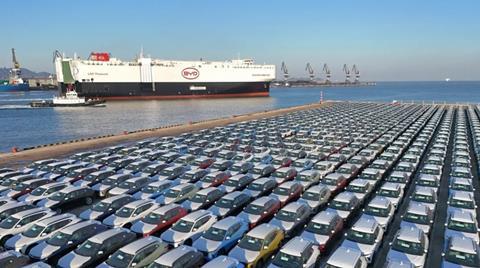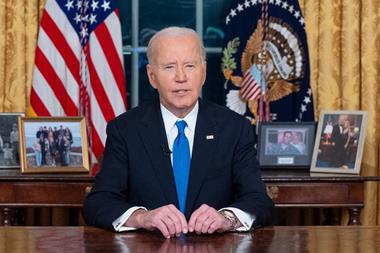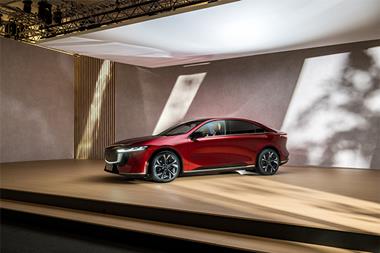The Government of Canada is imposing a 100% tariff on all imported Chinese-made electric vehicles (EVs) beginning October 1 this year, one of four measures the country has announced this week to address unfair international competition.

The tariff policy on Chinese vehicle and material imports, which was announced by Chrystia Freeland, deputy prime minister and minister of finance at the beginning of this week, follows similar action taken by the US and European Union.
The 100% tax on imports includes EV and certain hybrid passenger vehicles, trucks, buses and delivery vans. The tax comes on top of the 6.1% tax already applied to EVs produced in China and imported into Canada.
The federal government said it also intends to apply a 25% surcharge on imports of steel and aluminium products from China, effective October 15, 2024. It is also launching a second 30-day consultation concerning other sectors it deems critical to Canada’s future prosperity, including batteries and battery parts, semiconductors, solar products and critical minerals.
The government said that the measures aim “to protect Canada’s workers from China’s unfair trade policies and to prevent trade diversion resulting from recent actions taken by Canadian trading partners”.
The federal government is taking a fourth measure to limit eligibility for the Incentives for Zero-Emission Vehicles (iZEV), the Incentives for Medium and Heavy Duty Zero Emission Vehicles (iMHZEV), and the Zero Emission Vehicle Infrastructure Program (ZEVIP) to products made in countries which have negotiated free trade agreements with Canada.
China imports through Vancouver
Vehicle imports from China to Canada increased last year. The west coast Canadian port of Vancouver, Canada’s biggest port, registered an increase in vehicle imports from China last year, which accounted for 10% of import volume compared to 2% in 2022. A spokesperson told Automotive Logistics that this was because of new Tesla import volumes from China since the first half of 2023, a significant contribution to growth last year. Overall, automotive volume growth through the port in 2023 was stronger than expected, according to the spokesperson, increasing by 36% to more than 454,000 because of strong demand combined with growth in vehicle production.
The Canadian government said that in 2023, China’s annual EV exports totalled $47.2 billion, up from $0.2 billion in 2018. It has made it clear that the EV import tariffs will also apply to Teslas made in China and imported to Canada.
“Canada is home to the talented workers, raw materials, clean electricity, and specialised production capabilities needed to build electric vehicles, and that is why our EV supply chain potential is ranked first in the world,” said minister Freeland. “Canadian workers and critical sectors, including steel and aluminium, however, are facing an intentional, state-directed policy of overcapacity, undermining Canada’s ability to compete in domestic and global markets. That is why our government is moving forward with decisive action to level the playing field, protect Canadian workers, and match measures taken by key trading partners.”
With reference to battery materials, the Government of Canada made reference to the International Energy Agency, which indicates that China is the dominant producer and processor of critical minerals essential to the transition of net-zero, processing over half of all lithium, cobalt, graphite and rare earth elements.
That advantage to some extent comes from China’s engagement with mining and refining the rare earth metals needed for battery production, an industry from which the globalised West was previously glad to distance itself.
By contrast, there has been a drop-off in certain projects in North America aimed at the regionalised production EV battery materials. Umicore’s CEO Bart Sap recently announced a slowdown in the growth of EV demand affecting the industry to explain why it was halting construction its cathode production plant in Loyalist, Canada.
“Volumes for our legacy contracts are coming to an end faster than anticipated, there is a delay in the anticipated ramp-up of new contracts for Europe and the volumes for a Chinese battery OEM are not materialising in 2024,” said Sap.

























![Global[1]](https://d3n5uof8vony13.cloudfront.net/Pictures/web/a/d/s/global1_726550.svgz)













No comments yet